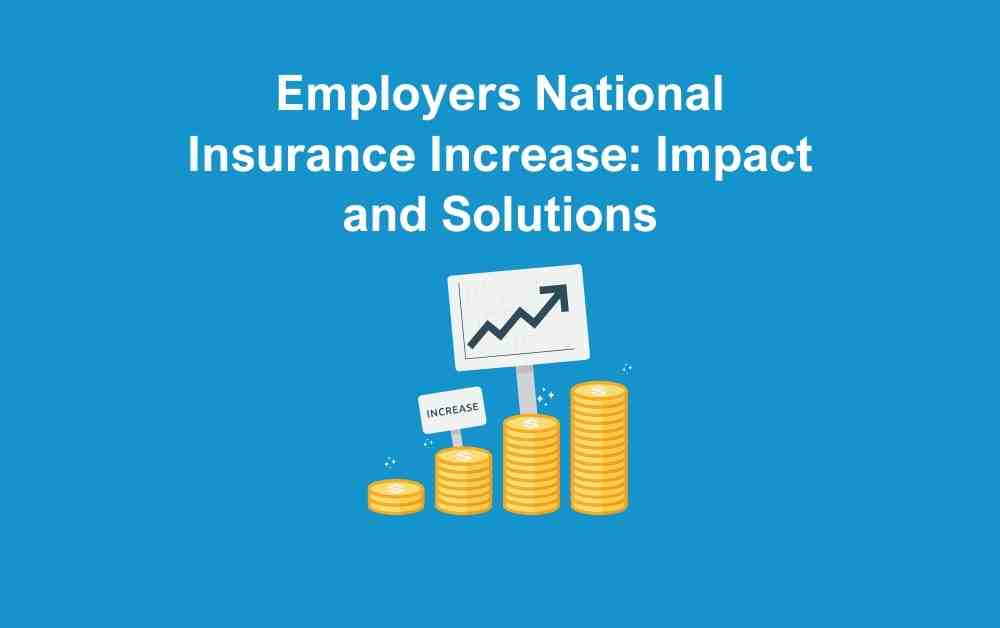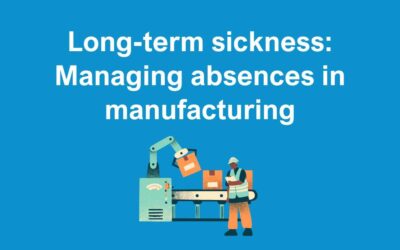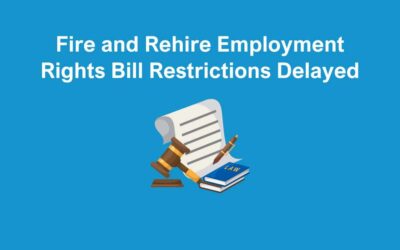Employer National Insurance increase is placing significant financial strain on UK businesses, prompting many to seek ways to manage rising costs while maintaining profitability. A survey by the British Chamber of Commerce of 5,000 businesses revealed that tax concerns are at their highest in eight years, with employers worried about the combined impact of higher NICs, a reduced payment threshold, and a rise in the National Living Wage, all set to take effect in April 2025.
In this blog, we will examine the impact of the employers national insurance increase, how businesses are responding, and practical, cost-effective solutions to mitigate the burden.
What is the Employers National Insurance Increase
The UK government has announced significant changes to Employer National Insurance Contributions (NICs) effective from April 2025. These adjustments are set to impact businesses across the country. Here’s a clear overview of the key changes:
Increase in Employer NIC Rate
- Current Rate: 13.8%
- New Rate from April 2025: 15%
This increase means that employers will pay a higher percentage on employee earnings above the Secondary Threshold.
Reduction in Secondary Threshold
- Current Threshold: £9,100 per year
- New Threshold from April 2025: £5,000 per year
With the threshold lowered, employers will start paying NICs on a larger portion of their employees’ earnings.
Increase in Employment Allowance
- Current Allowance: £5,000
- New Allowance from April 2025: £10,500
The Employment Allowance provides relief to smaller businesses by reducing their NIC liability. The increase aims to offset some of the additional costs arising from the rate hike and threshold reduction.
How Does the National Insurance Increase Affect Businesses?
The hike in NICs has forced many businesses to reevaluate their budgets and operations. Below are some key impacts:
- Higher Operational Costs
For businesses with large payrolls, the additional NICs can significantly reduce profit margins. - Price Increases
Some companies have passed the cost onto consumers by raising prices. While effective, this approach risks alienating customers. - Restructuring and Redundancies
Others have resorted to cutting jobs or restructuring their workforce. While this reduces expenses, it can harm company morale and reputation.
Solutions to Offset the NIC Increase
Instead of raising prices or cutting jobs, businesses can explore these strategies to adapt to the employers national insurance increase:
Implement Salary Sacrifice Schemes
Salary sacrifice schemes are an effective way to reduce employer National Insurance increase while providing valuable benefits to employees. Under these schemes, employees agree to exchange a portion of their salary for non-cash benefits, such as pensions, childcare vouchers, or cycle-to-work schemes.
For employers, this reduces the NIC liability, as contributions are based on the reduced salary figure. Employees also benefit by paying less tax and NICs on their adjusted income. Properly implemented, salary sacrifice arrangements can boost morale and save costs without impacting take-home pay significantly.
Invest in Employee Training
Upskilling employees can have a profound impact on a business’s efficiency and bottom line. By investing in management training programs, businesses can improve productivity and reduce the need for additional hires, thereby offsetting the employers national insurance increase. For instance, cross-training staff to perform multiple roles ensures greater flexibility and better resource allocation during busy periods. Additionally, apprenticeships and government-supported training schemes may provide further tax incentives, reducing overall expenditure.
Adopt Flexible Working Arrangements
Flexible working, including remote and hybrid models, offers more than just employee satisfaction. By reducing the need for office space, companies can lower overhead costs such as rent, utilities, and maintenance. With fewer employees commuting daily, businesses may also consider scaling back on travel allowances, further improving cost efficiency. Employers who adapt to flexible working also benefit from improved staff retention, reducing the costs associated with recruitment and onboarding.
Review Employee Benefits Packages
Non-monetary perks, such as flexible hours, additional leave days, or wellness programs, can maintain employee satisfaction while keeping costs manageable. Rather than increasing salaries, businesses could focus on providing benefits like discounted gym memberships, mental health support, or professional development opportunities. These alternatives can boost employee morale without significantly impacting the payroll budget.
Automate Repetitive Tasks
Automation technology is a powerful tool for reducing operational costs due to employers national insurance increase. By automating repetitive administrative tasks, such as payroll processing, invoice generation, or data entry, businesses can streamline operations and reduce the need for large support teams. While some automation software may come with a cost, the long-term savings in labour costs and increased efficiency make it a worthwhile consideration
Explore Tax Relief Opportunities
Businesses should actively research and take advantage of government tax incentives and grants. These may include schemes aimed at promoting innovation, energy efficiency, or job creation. If you would like help to source any grant opportunities, out team of experts are more than happy to assist.
Enhance Energy Efficiency
Energy-efficient practices can lead to substantial cost savings over time. Investing in LED lighting, improving insulation, and installing energy-efficient heating systems can reduce utility bills significantly. Businesses might also explore renewable energy solutions, such as solar panels, which not only cut costs but also align with corporate sustainability goals. Some green investments may qualify for government subsidies or tax breaks, offering further financial relief.
The Importance of Communication
Transparency is essential when implementing any changes to offset the NIC increase. Keeping employees informed helps maintain trust and morale, even during challenging times.
Preparing for the Future
Adapting to the employers national insurance increase requires innovation and resilience. Businesses that invest in efficiency, productivity, and employee wellbeing are more likely to weather the financial impact successfully.
While the increase presents challenges, it also offers opportunities for businesses to rethink their strategies. By focusing on cost-effective, employee-friendly solutions, companies can thrive even in a high-cost environment.
How The HR Booth Can Help
At The HR Booth, we understand the challenges businesses face with the employers’ National Insurance increase. Our expert team can support you in developing cost-effective strategies to manage rising costs while maintaining employee satisfaction. We offer support in the following areas:
- Salary Sacrifice Schemes – Helping you implement tax-efficient benefits to reduce NIC liabilities.
- Workforce Planning – Advising on efficiency improvements and support with restructuring.
- Compliance Support – Keeping your business up to date with employment law and payroll regulations.
- Cost-Saving Strategies – Identifying opportunities to mitigate rising employment costs while maintaining profitability.
Get in touch with us today to discuss how we can help your business stay financially resilient in 2025 and beyond.







